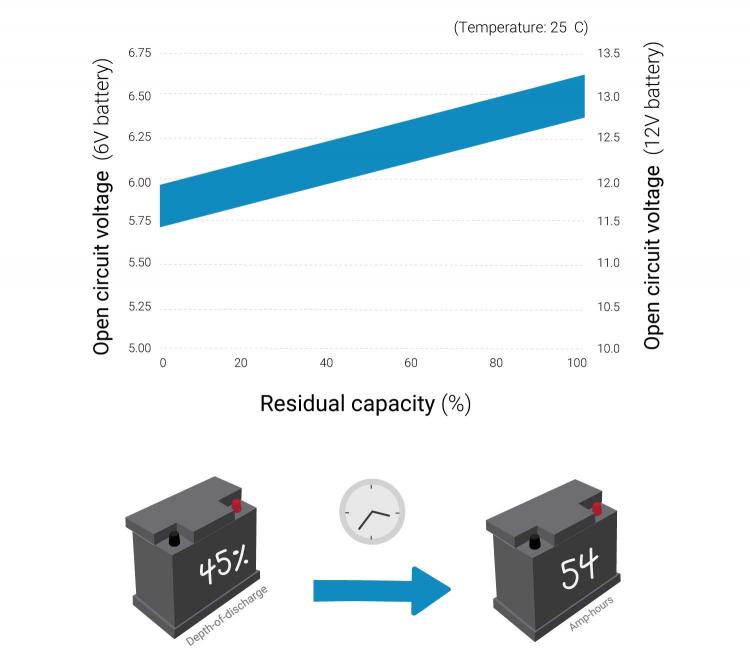In today’s world, where electric vehicles are becoming increasingly popular, one question that often arises is: how long should you charge your car battery? This seemingly simple inquiry is actually quite complex, as it depends on various factors such as the type of battery, the charger being used, and the current charge level of the battery. Understanding the optimal charging time is crucial not only for the longevity of your car battery but also for ensuring that it provides you with the necessary power to embark on your journeys without any hiccups. In this article, we will delve into the intricacies of car battery charging, exploring different scenarios and providing you with valuable insights to help you make informed decisions about charging your car battery effectively and efficiently.
When it comes to charging your car battery, one size does not fit all. The charging time can vary depending on whether you have a lithium-ion battery or a lead-acid battery. For instance, lithium-ion batteries, which are commonly found in modern electric vehicles, require a different charging approach compared to traditional lead-acid batteries. Moreover, the charging time can also be influenced by the type of charger you are using, as some chargers have a higher wattage and can charge the battery at a faster rate. Additionally, the current charge level of the battery plays a significant role. If your battery is completely depleted, it will naturally take longer to charge compared to a battery that is only partially drained. By understanding these factors and considering a few essential tips, you can ensure that you charge your car battery optimally, extending its lifespan and maximizing its performance.
How long should you charge your car battery?
It is recommended to charge your car battery for at least 4-8 hours or until it reaches a full charge. Leaving it on the charger for too long can damage the battery. Make sure to use a quality battery charger and follow the manufacturer’s instructions. Regularly charging your battery can help extend its lifespan and ensure optimal performance.

How Long Should You Charge Your Car Battery?
Charging your car battery for the right duration is crucial to ensure its optimal performance and longevity. Proper charging not only helps prevent battery failure but also extends its lifespan. In this article, we will guide you step by step on how long you should charge your car battery to keep it in top condition.
1. Understanding Battery Types
Before determining the charging duration, it’s important to know the type of battery in your car. There are primarily two types of batteries: conventional lead-acid batteries and maintenance-free batteries. Conventional batteries require periodic topping up of distilled water, while maintenance-free batteries are sealed and do not require any additional fluid. The charging time may vary depending on the type of battery you have.
For conventional lead-acid batteries, a general rule of thumb is to charge them at a slow and steady pace. This means using a low amp setting and allowing the battery to charge fully over a longer period. On the other hand, maintenance-free batteries can be charged at a faster rate using a higher amp setting.
2. Calculating Charging Duration
The charging duration of a car battery depends on its current state of charge (SOC) and the charging rate. To calculate the approximate charging time, you can use the following formula:
Charging Time (in hours) = Battery Capacity (in ampere-hours) / Charging Rate (in amperes)
For example, if you have a 60 ampere-hour battery and are using a 10-amp charger, the charging time would be 6 hours. It’s important to note that this is an estimate, and actual charging times may vary.
3. Using a Smart Charger
Investing in a smart charger is highly recommended to ensure proper charging and avoid overcharging your car battery. Smart chargers are equipped with advanced technology that automatically adjusts the charging rate based on the battery’s condition. They also have built-in safety features to prevent overcharging and damage to the battery.
When using a smart charger, simply connect it to your car battery following the manufacturer’s instructions. The charger will then analyze the battery’s condition and adjust the charging rate accordingly. This eliminates the need to manually calculate the charging duration, as the smart charger will optimize the process for you.
4. Regular Maintenance
In addition to charging your car battery for the appropriate duration, regular maintenance is essential for its overall health. Keep the battery terminals clean and free from corrosion, as this can hinder the charging process. Inspect the battery regularly for any signs of damage or leakage. If you notice any issues, it’s best to consult a professional for further assistance.
Furthermore, take your vehicle for a drive regularly as extended periods of inactivity can drain the battery. A short drive can help recharge the battery and prevent it from losing its charge completely.
5. Seeking Professional Help
If you are unsure about how long you should charge your car battery or encounter any difficulties, it’s always advisable to seek professional help. Automotive experts can assess the condition of your battery and provide personalized guidance on charging durations based on your specific vehicle and battery type.
Remember, proper charging is essential for the longevity and performance of your car battery. By following the guidelines mentioned above, you can ensure that your battery remains in optimal condition and serves you reliably for years to come.
Frequently Asked Questions
Here are some common questions about how long you should charge your car battery:
Q: How long should I charge my car battery?
When it comes to charging your car battery, the duration can vary depending on several factors. Generally, it is recommended to charge your car battery for about 4-8 hours. However, the exact time can depend on the size and capacity of your battery, as well as the type of charger you are using.
It is important to note that overcharging your battery can lead to damage, so it is crucial to avoid leaving it connected to the charger for an extended period of time. Additionally, it is advisable to consult your car’s manual or seek professional advice to determine the optimal charging time for your specific battery.
Q: Can I leave my car battery charging overnight?
While it is possible to leave your car battery charging overnight, it is generally not recommended. Charging a car battery for an extended period, especially without proper supervision, can lead to overcharging and damage to the battery. Overcharging can cause the battery to overheat and decrease its overall lifespan.
To ensure the longevity of your car battery, it is best to monitor the charging process and disconnect it once it is fully charged. If you need to charge your battery for an extended period, it is advisable to use a smart charger that automatically adjusts the charging rate to prevent overcharging.
Q: How often should I charge my car battery?
The frequency of charging your car battery depends on various factors, such as the usage pattern of your vehicle and the condition of the battery. In general, it is recommended to charge your car battery at least once every two weeks, especially if the vehicle is not being used regularly.
Regular charging helps to maintain the battery’s charge level and prevent it from becoming completely discharged. However, if you have a newer car with advanced battery management systems, it may be able to maintain the battery charge even when the vehicle is not in use for extended periods.
Q: Can I charge my car battery while driving?
No, it is not advisable to charge your car battery while driving. The alternator in your vehicle is designed to maintain the battery’s charge level and provide power to the electrical systems while the engine is running. It is not intended to charge a significantly discharged battery.
If your car battery is frequently running low, it may be a sign of a faulty alternator or other electrical issues that should be inspected and fixed by a professional mechanic. It is recommended to charge your car battery using a dedicated battery charger when needed, following the manufacturer’s instructions.
Q: How can I prolong the life of my car battery?
To prolong the life of your car battery, there are several measures you can take. Firstly, avoid leaving your car’s lights, electronics, or accessories on when the engine is not running, as this can drain the battery.
Additionally, regular maintenance such as checking and cleaning the battery terminals, ensuring the battery is securely mounted, and avoiding extreme temperature conditions can help extend its lifespan. Lastly, if you anticipate not using your vehicle for an extended period, it is advisable to disconnect the battery to prevent self-discharge.

Additionally, the state of charge of your battery plays a vital role in determining the charging duration. If your battery is completely drained, it may require a longer charging time to reach its full capacity. On the other hand, if your battery is only partially discharged, a shorter charging period may be sufficient. Lastly, external factors such as the charging equipment and ambient temperature can also impact the charging duration.
To ensure the longevity and optimal performance of your car battery, it is recommended to consult the manufacturer’s guidelines and follow their recommended charging methods. Regularly checking the state of charge and maintaining appropriate charging habits can help prevent unnecessary wear and tear on your battery. By taking these factors into account and being mindful of your battery’s specific needs, you can ensure a longer lifespan for your car battery and avoid unexpected breakdowns on the road.
